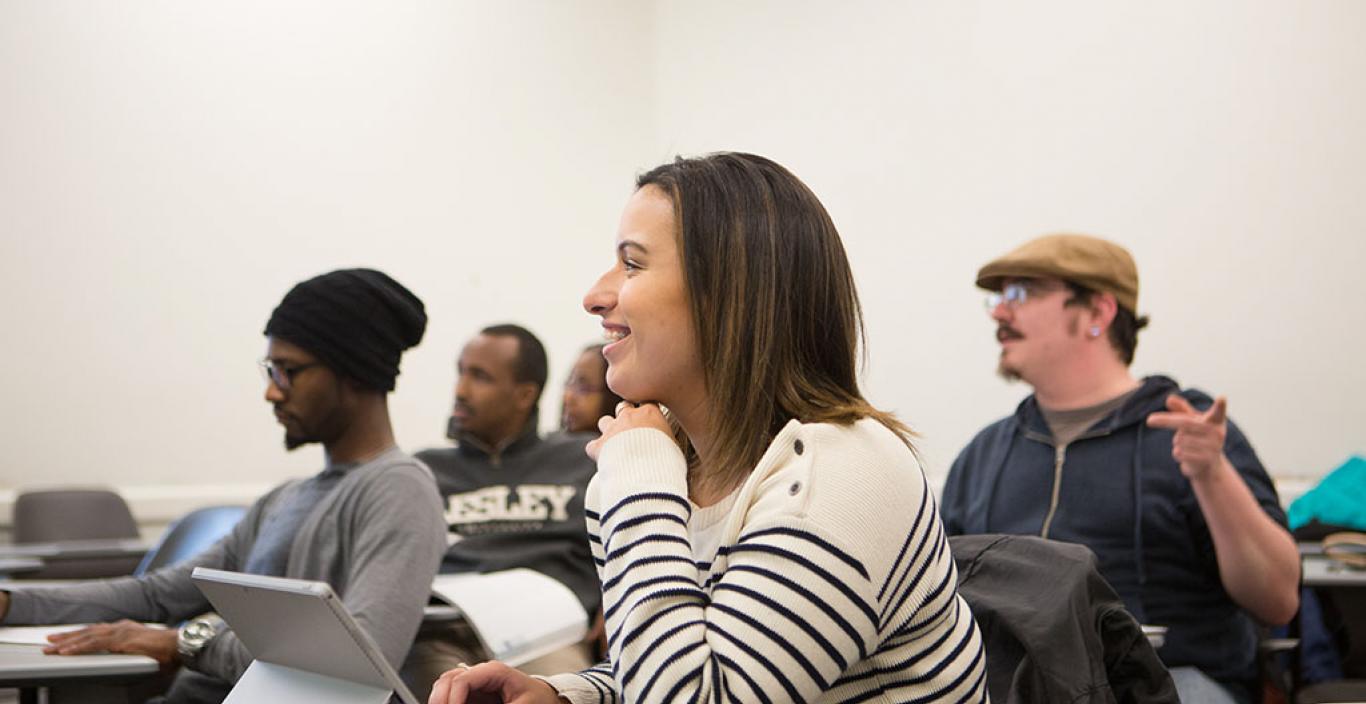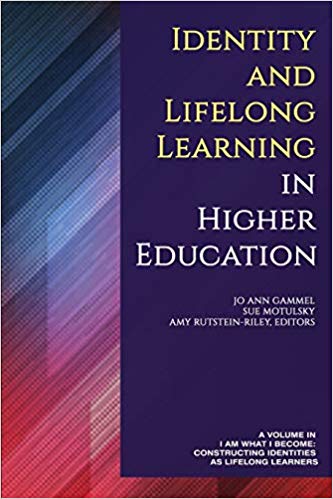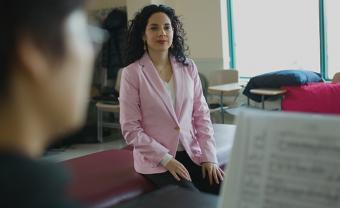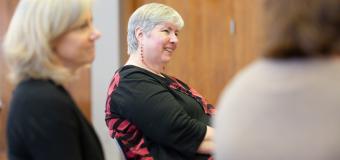There is no singular definition for “adult learner.” Depending on who is using it, the term refers to people attending college years or decades after entering the workforce, anyone post-high school, students in a continuing-education program and simply lifelong learners. A new book series edited by three members of the Lesley community examines the identity of adult learners with dozens of essays that range from qualitative studies to personal narratives.
“Learning occurs in all kinds of contexts that are not about formal programs but are about learning through life experience, learning through on-the-job training, through career transition, through cultural immigration experience. We wanted to look at adult learning broadly,” said counseling and psychology Associate Professor Sue Motulsky.
Dr. Motulsky, Graduate School of Education Interim Dean Amy Rutstein-Riley ’05 and adjunct professor Jo Ann Gammel are series editors for the project, “I Am What I Become: Identity and Lifelong Learning,” which will be published by Information Age Press in three volumes. The first, “Identity and Lifelong Learning in Higher Education,” was published in December.
“There are lots of books about adult learning and identity development, but there aren’t very many opportunities to look at how those intersect,” said Motulsky.
Lesley has been a leader in adult learning for decades and continues to create environments for adult learners, including our Center for the Adult Learner, a bachelor’s degree-completion program for people returning to college. Many institutions lack the same support for adult learners as are provided to traditionally-aged college students. The publishing project grew out of a desire to hear and learn from adult learning scholars and practitioners exploring how culture, place, history and other factors affect learning across adulthood, according to Rutstein-Riley.
Initially, the three professors thought they would receive a modest number of pitches in response to their call for proposals. Instead, more than 150 submissions came in from across the globe.
“This was something people had a lot to say about,” said Motulsky. Proposals examined race, culture, sexuality and lifelong learning, among other topics, and came in the form of studies, personal essays and a combination of the two.
One essay examined the influence of culture on adult college students in the mostly white, poor region of Appalachia. In another chapter, three Israeli teacher educators wrote about their own evolving professional identities while collaborating on a project to develop an innovative teacher training program.
Still another explored the tensions faced by lesbian-, gay- or queer- identified faculty who are charged with teaching future educators to build safe and affirming learning environments in their classrooms while they themselves work in an environment where they feel neither safe nor welcome.



